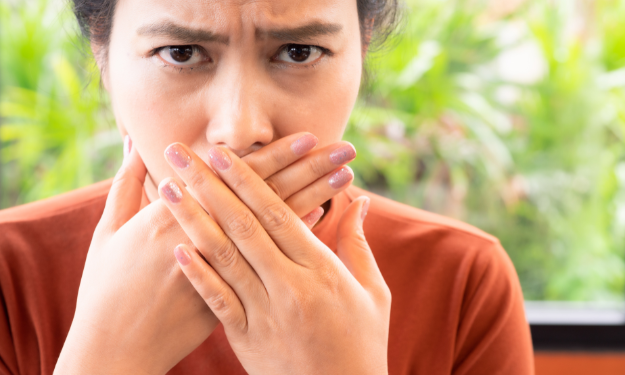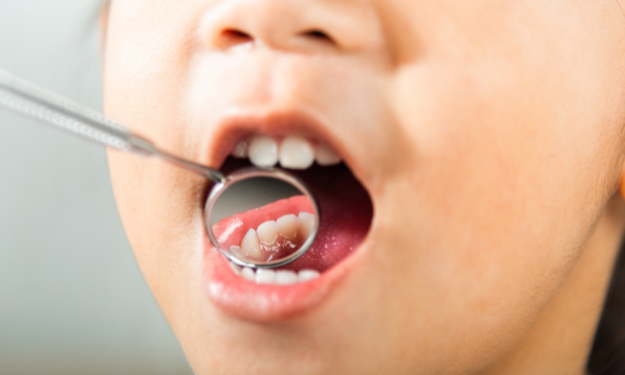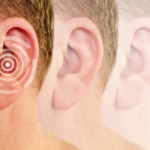Curious if allergies can leave you with dry mouth?
The answer is a resounding YES!
Allergies can really affect your oral health in many different ways.
In this post, we’re going to explore the fascinating link between allergies and dry mouth, and also discover other symptoms of allergies and how to manage them.
So, let’s jump right in and find out more!
Important Notices: This article is intended to provide general information about dry mouth and should not be used as a substitute for professional healthcare advice. Always consult with a healthcare professional for accurate information. This content is not designed to diagnose, treat, or cure any medical conditions. The information provided here is based on current knowledge and understanding, and may be subject to change as more research becomes available.
Managing Dry Mouth
While dry mouth can be uncomfortable and lead to other oral health problems, the good news is that there are several ways to manage this condition.
Staying Hydrated

One of the most effective ways to combat dry mouth is to stay hydrated. Drinking plenty of water can help maintain moisture in your mouth and alleviate dry mouth symptoms.
Using Home Remedies
Simple home remedies like chewing sugar-free gum or sucking on sugar-free candies can stimulate saliva production. Certain foods can help too. For instance, raw fruits and vegetables or anything that encourages chewing can assist in moisturizing the mouth.
Seeking Medical Attention
If home remedies and lifestyle changes are not enough to alleviate dry mouth, it’s always a good idea to seek medical attention. Your healthcare provider can guide you to specific treatments for dry mouth, depending on the underlying cause.
Remember, the impact of dry mouth can go beyond temporary discomfort. It can lead to significant oral health problems, so understanding and managing this symptom is critical for maintaining overall health.
What is Dry Mouth?

Dry mouth, one of the common allergy symptoms experienced by many, is often overlooked as a minor inconvenience.
However, it’s vital to understand this condition, as it may indicate underlying health issues or allergies.
In simple terms, dry mouth is a condition where the salivary glands in your mouth don’t produce enough saliva to keep your mouth wet.
Why Is Saliva Important?
Saliva is more than just water.
It helps you taste and digest food, protects your oral cavity from infections by controlling harmful bacteria and fungi in the mouth, and makes it possible for you to chew and swallow.
What Are The Possible Causes of Dry Mouth (A Lack of Saliva)?

Lack of saliva or dry mouth can be caused by various factors like medications, aging, cancer treatment, nerve damage, lifestyle choices, and autoimmune diseases.
Sometimes, even being under stress or feeling nervous can lead to dry mouth.
Dry Mouth: A Possible Symptom of Allergies
Dry mouth can often be a symptom of allergies, particularly during the allergy season when many allergy sufferers experience from hay fever and other allergic reactions.

This is due to the body’s immune response to allergens, leading to nasal congestion and causing people to breathe through their mouths, resulting in a dry mouth.
Understanding the Connection Between Allergies and Dry Mouth
Experiencing dry mouth during hay fever season is not unusual. It’s the body’s natural response to allergies.
The immune system releases histamines to attack allergens, but this can result in symptoms like a runny nose, itchy or watery eyes, and nasal congestion.
These symptoms often compel us to breathe through our mouths, leading to dry mouth.
Allergy Medications and Dry Mouth
Interestingly, some allergy medications also list dry mouth as a possible side effect.
Antihistamines, for instance, are designed to counteract the effects of histamines in your body, but they can also reduce saliva production.
How Pet Allergies Can Cause Dry Mouth

Pet allergies can result in dry mouth as well.
Pet dander can trigger various symptoms like a stuffy nose or runny nose, forcing individuals to resort to mouth breathing, which eventually leads to a dry mouth.
Other Possible Symptoms Along With Dry Mouth
Dry mouth can also be accompanied by other symptoms such as bad breath, a burning sensation in the mouth, difficulty speaking or swallowing, and a change in taste.
These symptoms can greatly impact an individual’s daily life and should not be ignored.
You might be experiencing other symptoms like dry eyes because of allergies. If you want to know how to manage these dry eye symptoms, click here to check out our post.
The Implication of Dry Mouth on Oral Health

The discomfort of having a dry mouth is not the only concern.
A persistent dry mouth can result in various oral health issues. Maintaining good oral hygiene is imperative to mitigate these risks.
If you’re experiencing any oral symptoms along with dry mouth, be sure to have a chat with your dental professionals.
The Risk of Tooth Decay and Gum Disease
Without enough saliva to wash away food particles and neutralize the acids produced by harmful bacteria, the risk of tooth decay and gum disease increases significantly.
Bad Breath: A Common Consequence

Dry mouth often leads to bad breath, as a decrease in saliva production allows the growth of oral bacteria. This is another common consequence of dry mouth that can affect an individual’s confidence and comfort.
The Link Between Dry Mouth and Sore Throat
When the mouth lacks saliva to keep things moist, it can often lead to a sore throat or even a scratchy throat. This is another discomforting side effect of dry mouth that one might experience.
Frequently Asked Questions
Q1: What causes dry mouth?
A: Numerous factors can lead to dry mouth, including certain medications, aging, cancer treatment, nerve damage, or certain health conditions such as diabetes and autoimmune diseases.
Q2: Can dry mouth be a sign of serious health problems?
A: While dry mouth itself is not a serious health problem, it can be a symptom of another underlying health condition. Therefore, persistent dry mouth should be checked by a healthcare professional.
Q3: How can I prevent dry mouth?
A: Staying hydrated, using a humidifier in your home, and avoiding triggers like caffeine, alcohol, and smoking can help prevent dry mouth. It’s also important to maintain good oral hygiene.
Q4: Are there specific medications that can cause dry mouth?
A: Yes, many medications can cause dry mouth. These include certain drugs for depression, anxiety, allergies, colds, obesity, acne, hypertension, and more. If you suspect your medication is causing dry mouth, consult your healthcare provider.
Q5: Can dry mouth be cured?
A: While there’s no cure for dry mouth, the condition can be managed effectively with lifestyle changes, home remedies, and in some cases, medical treatments. It’s important to talk to your healthcare provider if you’re experiencing dry mouth.










